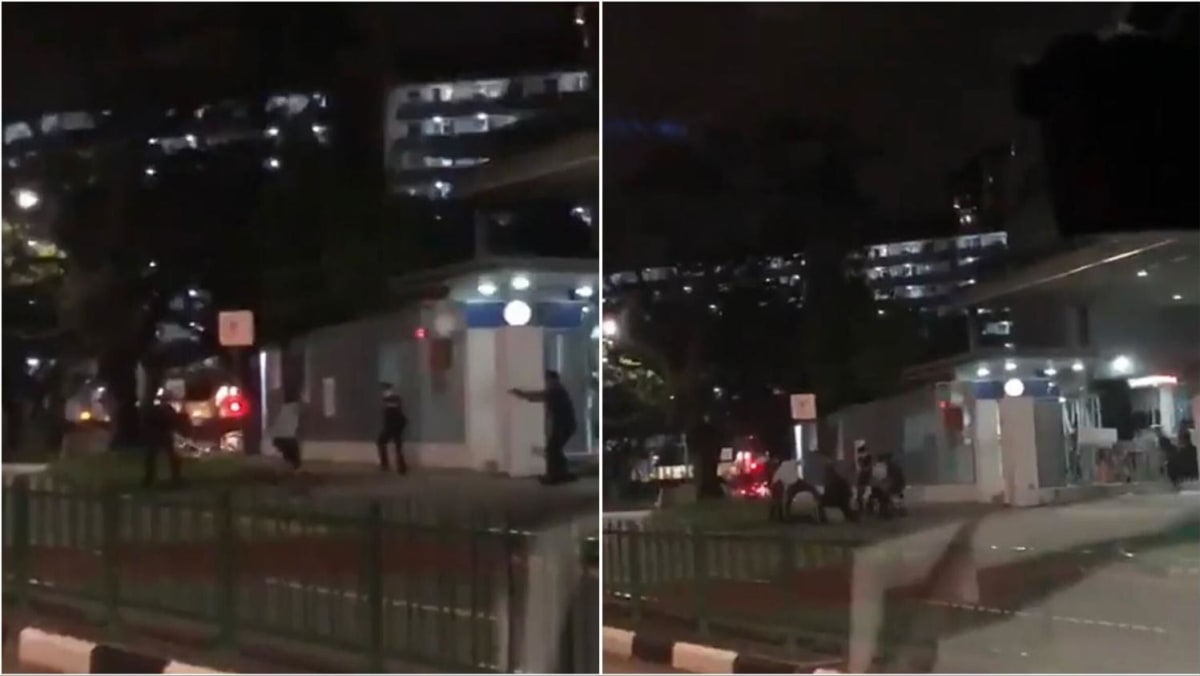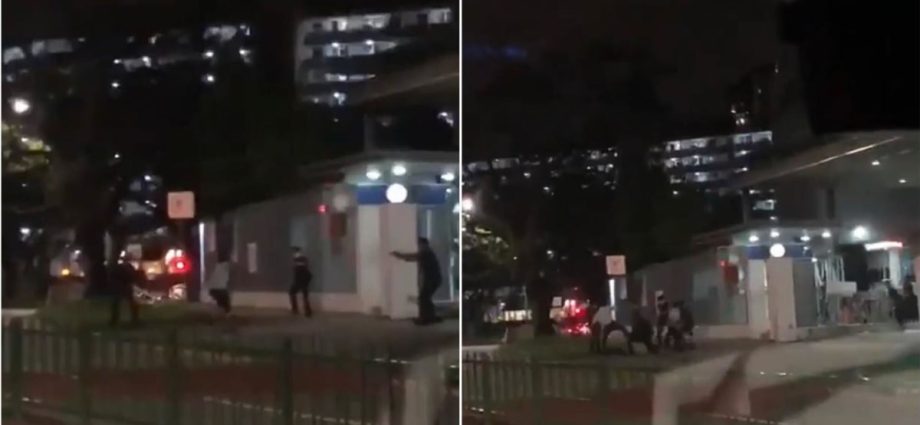
SINGAPORE: A man who attacked passers-by and was shot by the police after charging at them had his jail term cut from 33 months to 27 months on Monday (Jul 31), with the Chief Justice attributing the decision mainly to the man’s multiple mental conditions.
In reducing 50-year-old Soo Cheow Wee’s sentence, Chief Justice Sundaresh Menon also laid out the principles that would help a court sentence an offender with multiple mental conditions, and stressed the importance of psychiatric evidence.
Soo had pleaded guilty in September 2022 to four charges, which include voluntarily causing hurt by using a cutting instrument, criminal intimidation and causing hurt to deter a public servant from his duty.
He had taken cough syrup and diazepam – a drug for anxiety and alcohol withdrawal – without prescriptions, before loitering along a pavement in Clementi with a knife.
Soo slashed a passer-by and flagged a taxi, asking to be taken to Clementi Police Division. He tried to alight while the cab was moving and charged at the taxi driver, who alerted the police.
When the police arrived, Soo suddenly charged at one of the officers, prompting the latter to fire a round from his service revolver.
Soo fell down and was taken to hospital with a non-life-threatening gunshot wound.
It is accepted by both sides that Soo was experiencing an episode of psychosis when he committed the offences.
Even at the lower court, the judge had said he was “troubled” by Soo’s situation which he said was “a little bit” unique, as Soo had a mental condition that was triggered by what he consumed.
Defence lawyer Chooi Jing Yen said his client had been trying to avoid drugs and had wanted to be taken to the police station.
After Soo received the sentence of 33 months’ jail, he turned to the High Court to appeal for a lower sentence of not more than 23 months.
The prosecution was also dissatisfied with the jail term, appealing instead for it to be replaced by at least five years’ corrective training or a jail term of between 57 and 63 months.
Corrective training is a prison regime for repeat offenders without the usual one-third remission for good behaviour.
The Chief Justice, who heard the appeal, dismissed the prosecution’s application and reduced Soo’s jail term by six months, mainly because the district judge had not placed any weight on Soo’s mental conditions in calibrating his sentence.
Soo was represented by lawyers Chooi Jing Yen and Ng Yuan Siang from Eugene Thuraisingam’s law firm in his appeal.
HIS MENTAL CONDITIONS
Chief Justice Menon said Soo suffers from at least three mental conditions: Schizophrenia, polysubstance dependence and psychosis that is believed to be triggered by the substance abuse and which caused auditory hallucinations and persecutory delusions.
While the prosecution had argued that Soo had voluntarily ingested the drugs knowing that it would trigger his psychosis, the Chief Justice said there was no information in either the Institute of Mental Health (IMH) reports nor Corrective Training report that shed light on whether Soo knew that substance abuse would trigger his psychosis.
Because there was no evidence to show that Soo chose to ingest substances knowing they would result in violent psychotic behaviour, the judge took Soo’s mental condition as a mitigating factor instead of an aggravating one.
“To put it simply, I found it unrealistic, on the evidence before me, to approach this case disregarding the appellant’s medical conditions and sentencing him as though he was an ordinary mentally fit person, which is how the prosecution and the district judge appear to have approached sentencing in this case,” said the Chief Justice.
He pointed out that the psychiatric evidence available to him was inadequate, resulting in certain issues not being more thoroughly addressed.
The gaps in information arose because the IMH reports were prepared “for some other purpose, and not to aid the sentencing court”. Instead, they pertain to Soo’s fitness to stand trial.
“I was also troubled by the fact that the (corrective training) report appeared to suggest that the appellant experienced psychotic episodes in prison, where the appellant could not possibly have had access to intoxicating substances,” said the judge. “However, this too was not addressed in the psychiatric evidence.”
PRINCIPLES WHEN SENTENCING OFFENDER WITH MULTIPLE MENTAL CONDITIONS
In the judgment, the Chief Justice set out for the first time principles to guide a court that is sentencing an offender with multiple mental conditions.
He said the sentencing of a mentally disordered offender often requires the court to “contend with sentencing objectives that may pull in opposite directions, with some emphasising the need to protect society and others, the importance of rehabilitating the offender where feasible”.
The facts a court should consider include: The existence, nature and severity of each mental condition, the synergistic manner in which different conditions may “come together and operate on the accused person’s mind”, whether a causal link can be established between the conditions and the offence, whether the offender knew about his mental conditions and their effects, and whether the overall circumstances diminish the offender’s culpability.
The Chief Justice also listed some questions that should be addressed in a psychiatric report on an offender’s mental condition.
These include whether an offender could have prevented the onset of the symptoms leading to the commission of an offence, whether he could have exercised control over his actions at the time of the offence and whether the mental condition could be treated or controlled.
The Chief Justice said that if an offender embarks on a course of actions that makes him more susceptible to the symptoms of his mental conditions surfacing despite knowing about his conditions and their effects, his “self-induced condition” will not be a mitigating factor.
However, if he is unaware or lacks sufficient understanding of the effect that intoxication or substance abuse might have in precipitating symptoms of his conditions, then his consumption of alcohol or other substances may not be treated as an aggravating factor.

